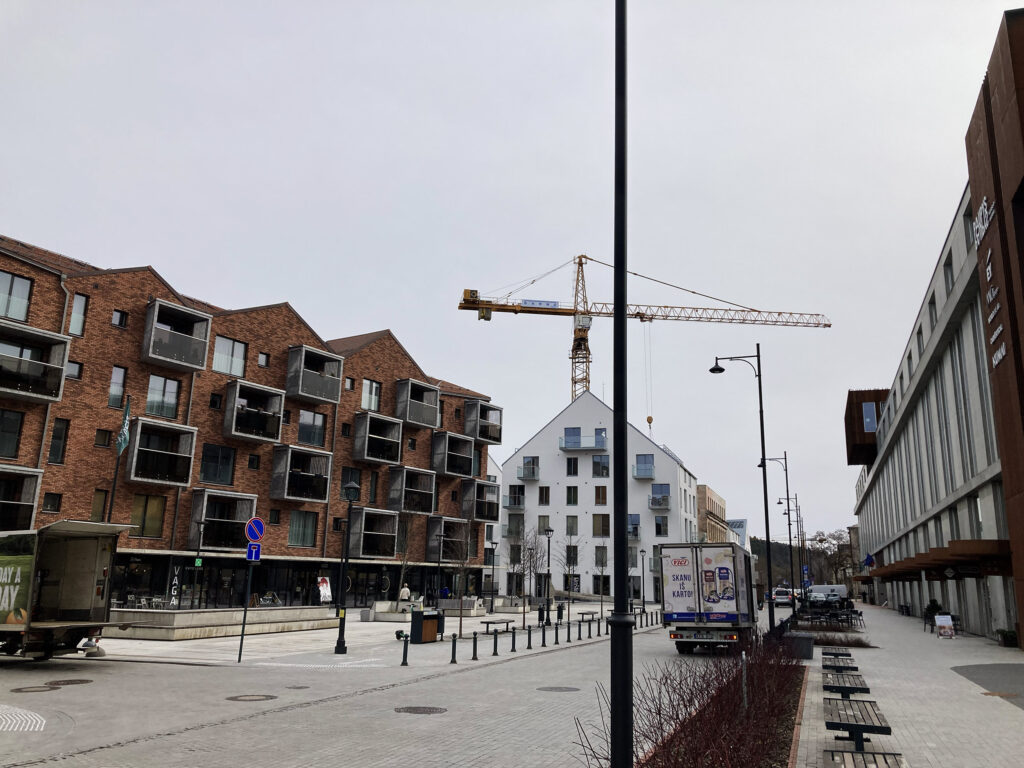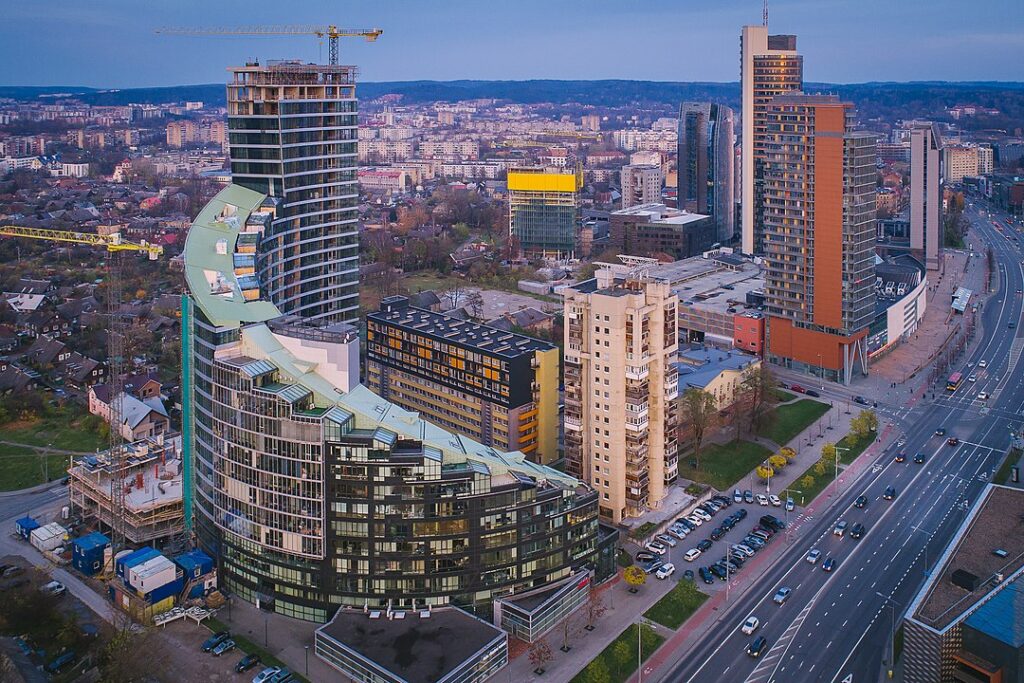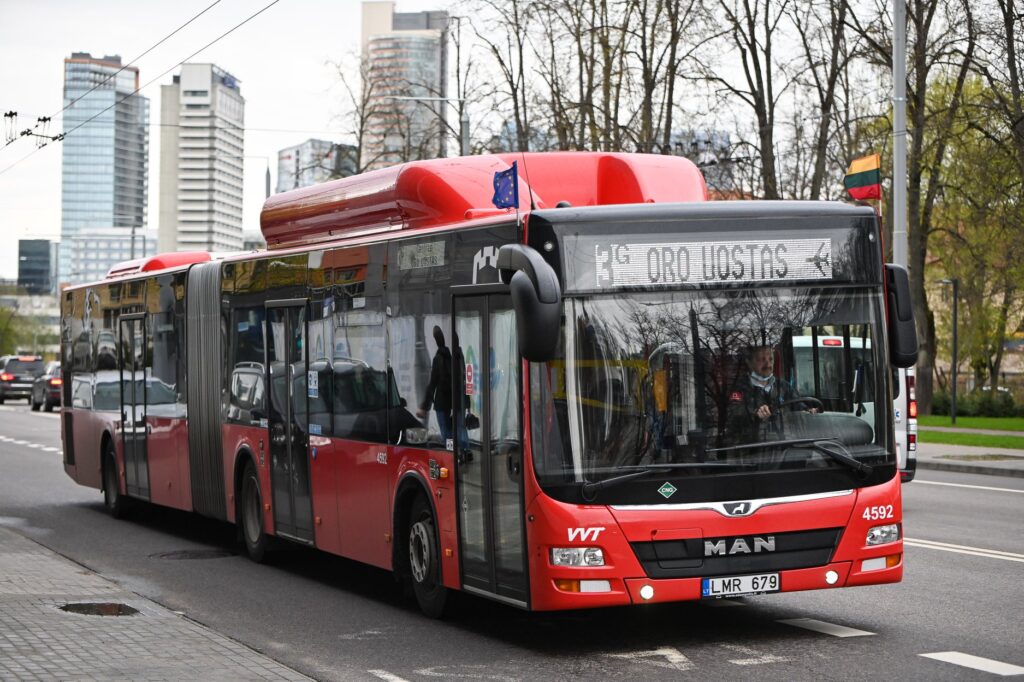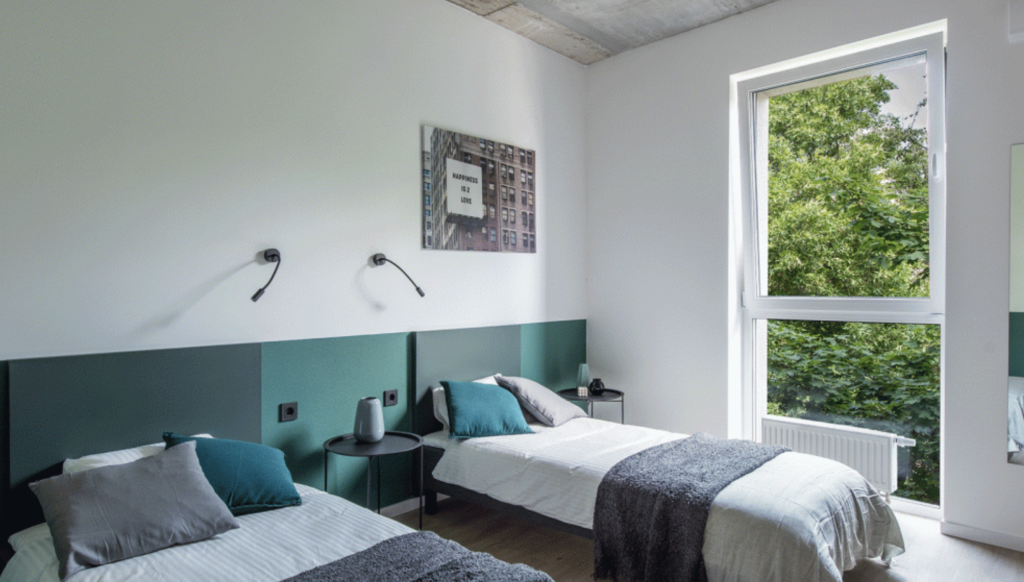Renting An Apartment In Lithuania: What Foreigners Should Know

A question/situation that often comes up among foreigners goes something like this: “I’m relocating to Lithuania soon and I need to find an apartment for ______ euros, does anyone have advice?”
To help those who find themselves in this situation, here are some things to know about long-term housing in the country.
Before I get into advice, I should say that most people go to Aruodas to search for rental listings. The english version of the site is: https://en.aruodas.lt. Before you start your search though, be sure to check out the points below!
#1. Apartments are available for rent…just not to foreigners
Call it discrimination, xenophobia, or at its worst ‘racism,’ but many landlords try to avoid renting their properties to foreigners. This may be one reason why your inquiries (phone calls or emails) are being ignored. Other landlords will save you the guesswork and explicitly state in their listings that they don’t want foreigners. So why is this? There are a couple reasons…
- Tax evasion: Renting ‘the old-school way’ with a cash payment each month is still something some Lithuanian landlords do. This helps them to avoid taxes and pocket the full amount of rent collected. Foreigners staying long-term will eventually need to declare their place of residence – something which requires the consent of the landlord. But, this would also expose the landlord as being… well… a landlord. Thus, with the government knowing that they are renting out a property, they’ll definitely want to collect some tax revenue from that income.
- Foreigner complications: This is a broad category but it can range from language barriers to cultural classes or discomfort and unfamiliarity. Maybe a landlord has nothing against foreigner, but simply fears the complications that are associated with communication in a language that is not their own. Soviet-era citizens rarely speak English comfortably and many landlords come from that period.
- Racism: This reason will probably sting the most. Maybe it stems from the bad experience of a previous (foreigner) tenant, or they simply don’t want to have any association with certain foreigners. Yes, it happens, unfortunately.
- Lifestyle discrimination/assumptions: It could be about lifestyle. Students are more often associated with having loud parties or playing loud music. Young parents might have different ideas of parenting that do not involve strict supervision. It’s suggested that the landlord might be old friends with the neighbors, who will report back on the tenants. It could be these neighbors who may be the ones who dislike foreigners.
- Eviction complications? A contributor from YouTube tells me that once a residence is officially declared it can almost be impossible to evict, especially when children are involved. This person also notes that it is possible to live at one address and to declare another, for a fee, as the official residence.
- Competition: All of this is compounded by the fact that it is a tight market that favors the property owner. A large influx of migrants and refugees from Belarus and Ukraine, in addition to the usual influx of students and foreign labor, mean that there could be numerous people chasing the same rental listing.

#2. Buy yourself some time
My experience of relocating to Lithuania was a little different since I went from being a tourist to a serious relationship really quickly. In terms of housing, this meant that I went from an AirBnB to sharing an apartment with my future spouse in a very short amount of time. Lucky me!
But I did move away from my home country of Canada to Scotland a while back and I definitely learned some hard lessons about finding an apartment. I won’t get into the details, but if I were to repeat the process, I would definitely do things differently.
I get the sense that EVERYONE wants to find the perfect place right away – perhaps even before they arrive in the country. After all, who wants to move more than once in such a short time? As a result, there is a lot of stress and uncertainty associated with housing location, price, etc.

My advice: Set a little extra money aside and book an Airbnb (or other form of long-term housing) for 1-3 months. This will give you the time and space you need to figure out your new city and how transportation works. You can also shop around and actually inspect the place before agreeing to move in. This extra time might reveal a neighborhood that you never considered, or you’ll make some connections that will be a gateway to finding a suitable rental property. Yes, this means you’ll have to move again – but at least you’ll be more prepared.
#3. Consider somewhere away from the city center
If you’re moving to somewhere like Vilnius or Kaunas, an apartment in the city center will definitely be much more expensive than in a surrounding neighborhood. Some neighborhoods are quite well-connected by public transportation, which means that you’ll only need 15-30 minutes by bus to get to the city center.
Public transport (buses), in my opinion, are quite affordable – and if you find an apartment located close to an express line (in Vilnius it would be buses like the 1G, 2G, 3G, etc), getting to and from the city center will be quite easy.
That’s why I think point #2 works well in giving you time to discover areas other than the city center for renting.

#4. Consider a co-living space?
Now I haven’t tried this myself, but I now know multiple people who have lived (or are still living) in co-living spaces.
These are living spaces/properties where you have a small personal apartment space with a mini-kitchen and bathroom, but you lack other spaces. Geared towards foreigners (or at least foreigner friendly), these spaces are a little more expensive but compensate for this with things like:
- Free/included WiFi
- Utilities (electricity, water) included in the cost of rent
- A communal gym
- Communal hangout areas
- Community events
With such amenities, it’s hopefully a space to meet others in a similar situation and make connections in your new city of residence.

At least in Vilnius, these are the places I’ve heard of thus far (so I’m not sure if there are others).
- Chapters: https://www.chapters.lt/en/
- Liv_In: https://liv-in.lt/en
- SHED: https://shedcoliving.com/vilnius/
- Solo Society: https://solosociety.lt/city-house-vilnius/
- Youston: https://www.youston.lt/en
#5. Join foreigner Facebook communities
While I personally dislike Facebook (or what it has become over the years), I stay connected with the “Foreigners in Vilnius” Facebook Group. It’s a good place to ask questions and get answers for obscure questions – because, as foreigners, many of us have been where you are now. Here are some groups you can consider joining:
Foreigners in Vilnius: https://www.facebook.com/groups/209733365824002/
Foreigners in Kaunas: https://www.facebook.com/groups/373968196139299
Foreigners in Klaipeda: https://www.facebook.com/groups/644633913518232
International People in Vilnius: https://www.facebook.com/groups/561476693933316

Conclusion
Renting can be stressful and full of bad experiences. Make sure you do as much research as possible, get things in writing (like a contract, if staying somewhere long-term). It was also suggested that since renters (in any country) tend to take less care of rentals, overdressing is better than underdressing. Look like you are going to take care of the property. Finally, remember to reach out to the foreigner community if you have any questions.
Good luck! Sėkmės!
PS: Thanks to “Steve” for contributing a few extra points! If you have anything else to add, leave it in the comments section below.



